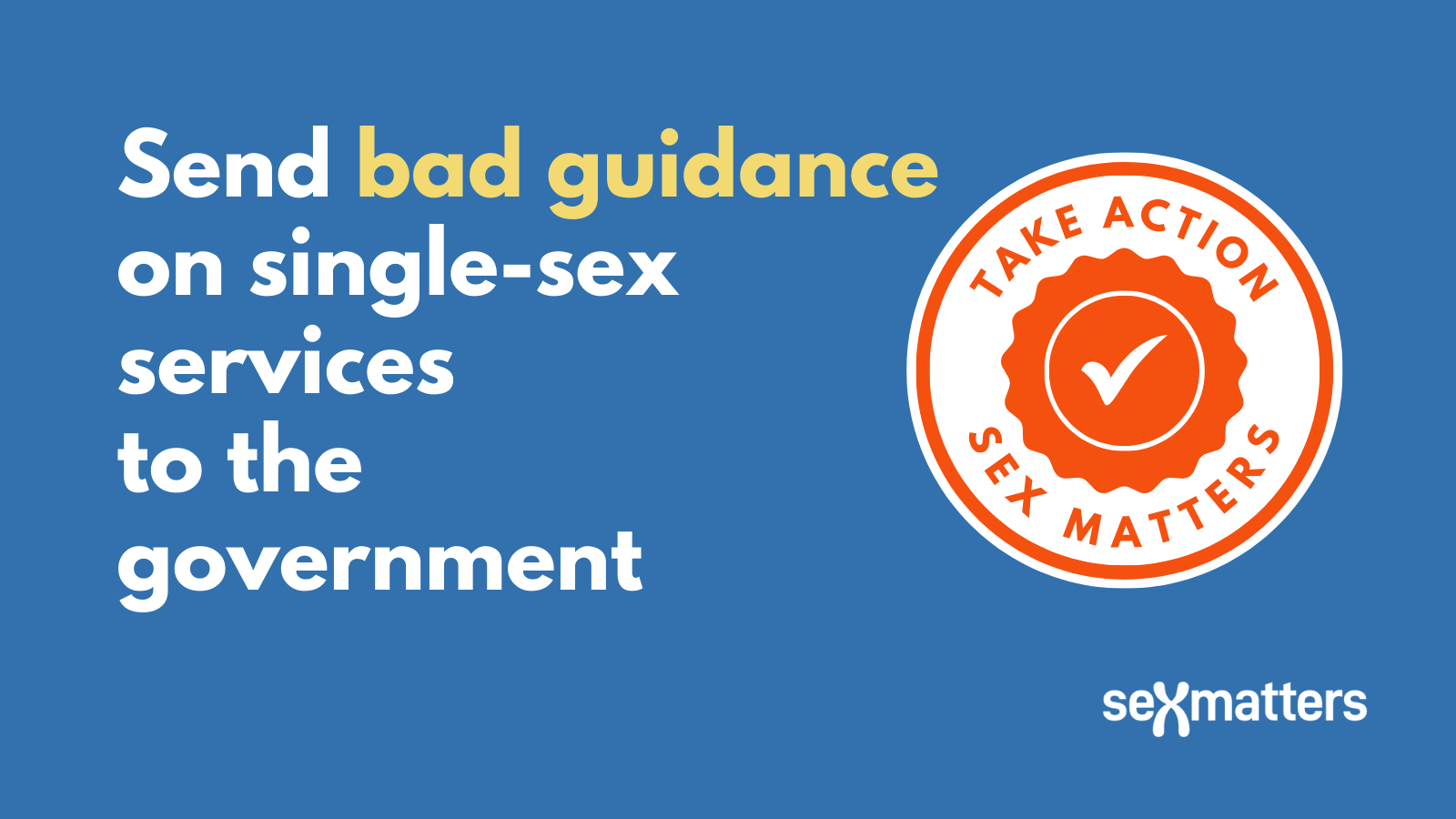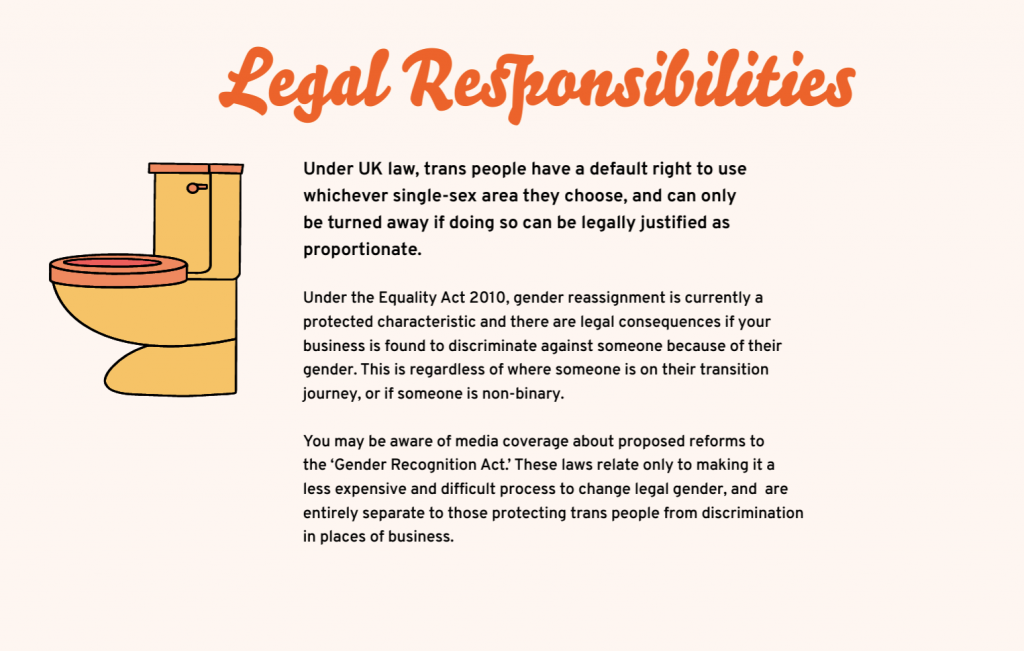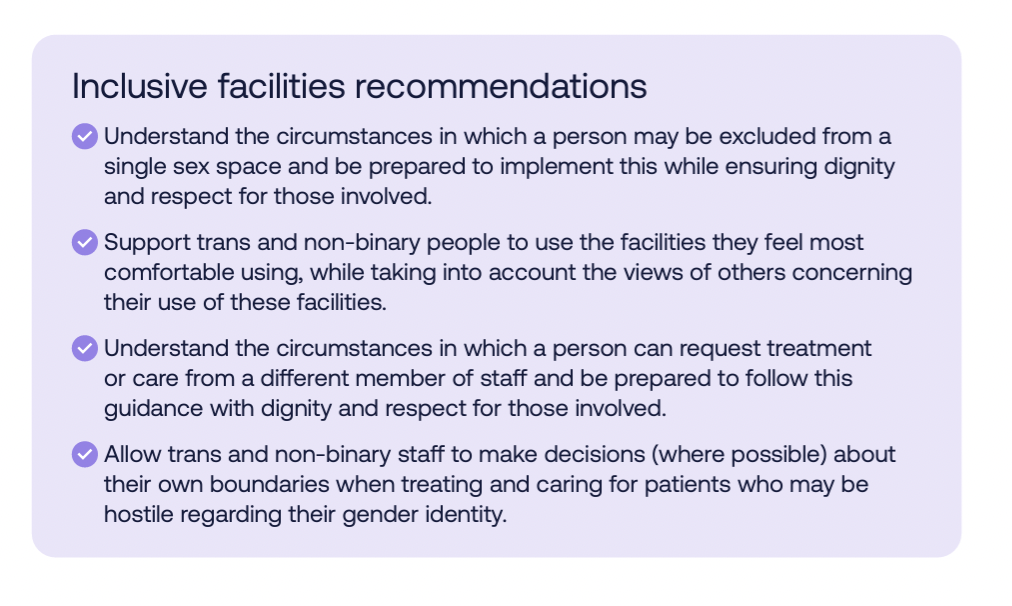Submit evidence of bad guidance
The government’s Equality Hub wants evidence of guidance that wrongly suggests people have a legal right to access single-sex spaces and services according to their self-identified gender.

Sex Matters has produced a briefing with worked examples and a worksheet to help you plan your answers.
- Send in examples of policy or guidance from public bodies or industry groups which suggest that people have a legal right to access single-sex spaces for the opposite sex.
- This can include everyday services like toilets, changing rooms and dormitories as well as specialist services and sports.
- The call for evidence covers England, Scotland and Wales and UK-wide guidance.
- Links, screenshots or documents can be attached.
- You are not asked to give personal information about yourself.
- This call for input closes at 11.59pm on Wednesday 26th June 2024.
How to do it
- Read our briefing with worked examples.
- Collect your own evidence from other organisations (e.g. a link, screenshot or downloaded documents).
- Use our worksheet to plan your answers to the survey.
- Cut and paste the answers for each of your bad examples into the government’s survey.
When you click the button above you will see an explanatory page and then a series of screens asking for information. Each example must be provided as a separate response but the process is fairly quick.
You don’t have to be a legal expert to respond to the survey. Most guidance contains some parts that reflect the Equality Act, and some which are misleading, overstated or too vague to be workable. If in doubt, send it in. For any guidance which suggests that people are entitled by law to use facilities for the opposite sex, you can simply say:
“The Equality Act allows a service provider to provide single or separate-sex services. It does not give people the right to access services for the opposite sex.”
Our briefing gives some more detailed examples.
Straightforward misstatements of the Equality Act
The Equality Act does not give people the right to use whichever facilities they want to.
Half-truths
It is true that gender reassignment is a protected characteristic. This does not mean that it is disproportionate to provide single-sex areas and expect people to comply with clear policies.
Unworkable inclusion
Inclusion sounds nice, but in practice it is not possible to provide a space that both includes people who expect privacy from the opposite sex and those who want access to a space shared with members of the opposite sex. Organisations that view women who want bodily privacy as being “hostile” are not being inclusive.



